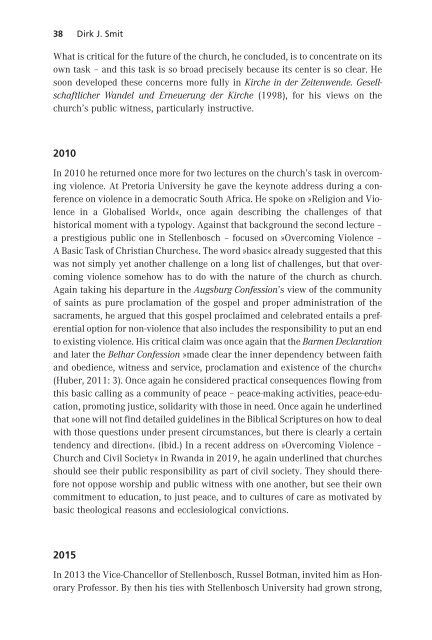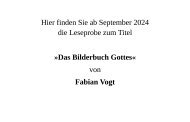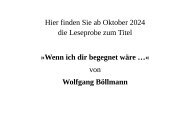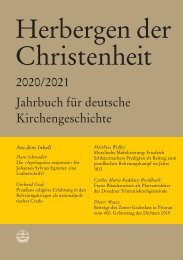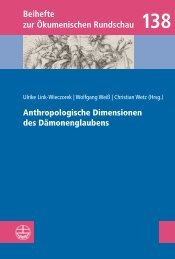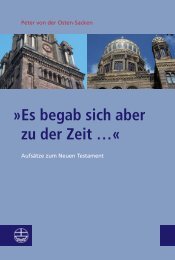Heinrich Bedford-Strohm | Peter Bubmann | Hans-Ulrich Dallmann | Torsten Meireis (Hrsg.): Kritische Öffentliche Theologie (Leseprobe)
Das Programm der Öffentlichen Theologie ist in unterschiedlichen internationalen Kontexten auf je eigene Weise entstanden und lässt sich als Diskursformat verstehen, das auf eine veränderte Öffentlichkeit reagiert und mittlerweile im Global Network for Public Theology zu einer eigenen akademischen Gestalt gefunden hat. Da diese Geschichte nicht nur im deutschsprachigen Kontext ohne Wolfgang Hubers Einfluss nicht nachvollzogen werden kann, ist es sinnvoll und angemessen, ihm einen Band zu widmen, der die Begründung und Weiterentwicklung der von ihm angestoßenen kritischen Spielart Öffentlicher Theologie zum Thema hat.
Das Programm der Öffentlichen Theologie ist in unterschiedlichen internationalen Kontexten auf je eigene Weise entstanden und lässt sich als Diskursformat verstehen, das auf eine veränderte Öffentlichkeit reagiert und mittlerweile im Global Network for Public Theology zu einer eigenen akademischen Gestalt gefunden hat. Da diese Geschichte nicht nur im deutschsprachigen Kontext ohne Wolfgang Hubers Einfluss nicht nachvollzogen werden kann, ist es sinnvoll und angemessen, ihm einen Band zu widmen, der die Begründung und Weiterentwicklung der von ihm angestoßenen kritischen Spielart Öffentlicher Theologie zum Thema hat.
Erfolgreiche ePaper selbst erstellen
Machen Sie aus Ihren PDF Publikationen ein blätterbares Flipbook mit unserer einzigartigen Google optimierten e-Paper Software.
38 Dirk J. Smit<br />
What is critical for the future of the church, he concluded, is to concentrate on its<br />
own task – and this task is so broad precisely because its center is so clear. He<br />
soon developed these concerns more fully in Kirche in der Zeitenwende. Gesellschaftlicher<br />
Wandel und Erneuerung der Kirche (1998), for his views on the<br />
church’s public witness, particularly instructive.<br />
2010<br />
In 2010 he returned once more for two lectures on the church’stask in overcoming<br />
violence. At Pretoria University he gave the keynote address during aconference<br />
on violence in ademocratic South Africa. He spoke on »Religion and Violence<br />
in aGlobalised World«, once again describing the challenges of that<br />
historical moment with atypology. Against that background the second lecture –<br />
aprestigious public one in Stellenbosch – focused on »Overcoming Violence –<br />
ABasic Task of ChristianChurches«. The word »basic« already suggestedthat this<br />
was not simply yet another challenge on along list of challenges, but that overcoming<br />
violence somehow has to do with the nature of the church as church.<br />
Again taking his departure in the Augsburg Confession’s view of the community<br />
of saints as pure proclamation of the gospel and proper administration of the<br />
sacraments, he argued that this gospelproclaimed and celebrated entails apreferential<br />
option for non-violence that also includes the responsibility to put an end<br />
to existing violence. His criticalclaim was once again that the Barmen Declaration<br />
and later the Belhar Confession »made clear the inner dependencybetween faith<br />
and obedience, witness and service, proclamation and existence of the church«<br />
(Huber, 2011: 3). Once again he consideredpractical consequences flowing from<br />
this basic calling as acommunity of peace – peace-making activities, peace-education,<br />
promoting justice, solidarity with those in need. Once again he underlined<br />
that »one will not find detailed guidelinesinthe Biblical Scriptures on how to deal<br />
with those questions under present circumstances, but there isclearly acertain<br />
tendency and direction«. (ibid.) In arecent address on »Overcoming Violence –<br />
Church and Civil Society« in Rwanda in 2019, he again underlined that churches<br />
should see their public responsibility as part of civil society. They should therefore<br />
not oppose worship and public witness with one another, but see their own<br />
commitment to education, to just peace, and to cultures of care as motivated by<br />
basic theological reasons and ecclesiological convictions.<br />
2015<br />
In 2013 the Vice-Chancellor of Stellenbosch, Russel Botman, invited him as Honorary<br />
Professor. By then his ties with Stellenbosch University had grown strong,


